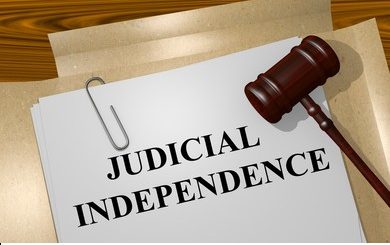If Magistrates Courts in Uganda are less competent and more prone to corruption does it mean that the poor deserve inferior justice to the rich.

The prestige, reputation and value attached to anything can be deduced from the way it’s treated. We look at the actions and words of the relevant people to determine how much they value something.
In Uganda there are two court systems. The Courts of Judicature (High Court to Supreme Court) that are provided for by the Constitution and what they refer to as the Lower Courts (Magistrates Courts) that are created by Parliament. There are at least 40 High Court circuits in Uganda but there is at least one Magistrate in every district. There are at least 400 Magistrates in Uganda as of 2025 manning as many as 300 Magistrates Courts.
The Magistrates Courts are the courts of first instance for most disputes except capital offenses and civil offenses whose value exceeds fifty million shillings. So most poor people never appear in the so called higher courts except on appeal. Therefore, the poor are the ones most affected by the decisions of these lower courts.
We can deduce from the Jurisdiction of Magistrates Courts and treatment of the Courts and the Magistrates that hear disputes in these courts that they are considered less competent, inferior and more prone to corruption than the High Court, Court of Appeal and the Supreme Court. We are not just referring to inferiority in terms of the Jurisdiction that they have but in terms of personnel and trust.
Inferior Jurisdiction and need to confirm sentences of more than two years
In Uganda Grade One Magistrates have jurisdiction to hear criminal cases where the punishment is less than life imprisonment and can impose a sentence not exceeding ten years imprisonment. However a sentence by a Grade One Magistrate that exceeds two years must be confirmed by the High Court. So basically a Magistrate Grade One can only be trusted to pass a sentence of two years or less because if he or she passes a higher sentence it’s as a matter of law presumed to be erroneous and must be first checked by a higher court and confirmed. So if these Judicial Officers can not be trusted to exercise the discretion vested in them why should the public trust their decisions. Under this rule the accused person or anyone need not be aggrieved by the decision of the Magistrate. No one need have identified an error or mistake in the evaluation of the evidence or the law. The decision of the Magistrate can be perfectly sound and properly reasoned but the law assumes that it is wrong or erroneous and requires that someone else should examine the court record and confirm it even if no one is aggrieved by the decision.
Inferior salaries and benefits.
If you were a lawyer you would know the distain and prejudice that lawyers have for the Magistrates Courts. If you were a Judicial Officer you would know the way judges and the judiciary undermine Magistrates and the courts they preside over. The salary and benefits of a judge (40m to 50m) are ten times those of a Magistrate Grade One (5m). A judge gets a state car and driver, bodyguards, house rented by the state and a lead car. A Magistrate Grade One is not even afforded a motorcycle. The situation used to be that a judge earned a base salary of 15m exempt from tax while a Grade One Magistrate earned 1.2m that was subject to tax. In recent times the tax was removed but as salaries were increased the difference of the ten multiple was left intact. In practical terms nothing has changed in the last decade for Magistrates. Obviously you can not pay peanuts to valuable employees. Money speaks volumes.
Inferior court structures and amenities
Magistrates Courts are everywhere in Uganda. They operate in old structures that are falling apart and that lack even a decent toilet. Move around the country and you will be amazed at how bad the working environment is at some of the Magistrates Courts. Some of the structures used by courts are not worthy for the pigs and goats of a rich farmer. A court of justice should be such that it is recognized as a hall of justice and it should have such a presence that the public respects not just its outlook but the work that it does. When choosing premises for a High Court they often rent prestigious premises worth the status of the court. When choosing premises for Magistrates Courts anything goes as long as people can sit and be heard.
So if the stakeholders and the public think Magistrates are inferior, corrupt and unreliable then it means those that are most impacted by decisions of Magistrates are entitled to inferior justice. The poor are the most impacted by decisions of Magistrates because most of their disputes fall within the Jurisdiction of Magistrates Courts.
- Four years of IGG Beti Kamya drowned the Inspectorate of Government (IG) deeper into oblivion and irrelevancy but it Can be redeemed
- The Proposal to Make Magistrates Grade Ones Chief Magistrates is an efficient use of resources that will improve service delivery in Uganda
- If Magistrates Courts in Uganda are less competent and more prone to corruption does it mean that the poor deserve inferior justice to the rich.
- Women Members of Parliament (MPs) in Uganda are the most egregious discrimination against men in Uganda
- The UPDF Amendment Bill 2025. A proposed compromise that could protect political opponents of the ruling party.


